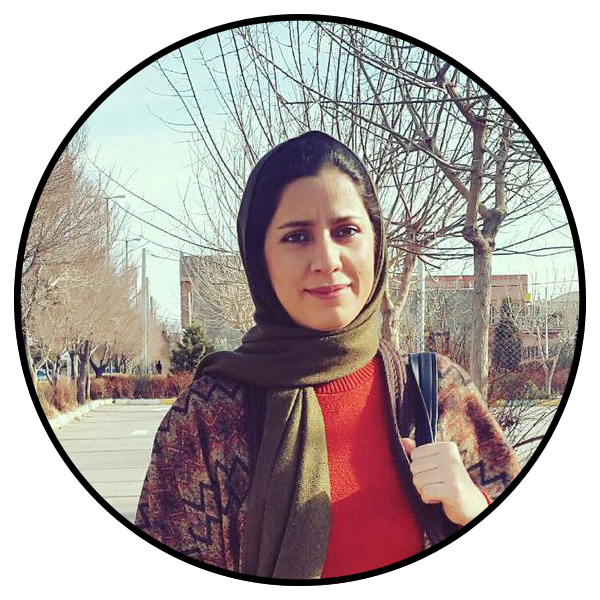
Dr Amir-Homayoun Javadi | group leader – a.h.javadi@gmail.com
Amir-Homayoun is a senior lecturer in cognitive neuroscience at School of Psychology, University of Kent, an honorary research associate at Institute of Behavioural Neuroscience, University College London, and a visit professor at School of Rehabilitation at Tehran University of Medical Sciences. Prior to taking up his position at University of Kent he was a postdoctoral researcher at University College London (UK), Dresden University of Technology (Germany) and Humboldt University in Berlin (Germany).
With a background in electrical engineering he finished his PhD in Cognitive Neuroscience at University College London. Combining his engineering and scientific training, he aims at using different tools and methods to understand brain mechanisms underneath memory, learning and decision making, as well as depression. His ultimate goal is to develop innovative intervention methods to help healthy ageing and faster rehabilitation and recovery of individuals suffering from a form of brain injury, such as stroke.

Fadi Ifram | PhD student – fi32@kent.ac.uk
Fadi started his PhD in Cognitive Psychology at the University of Kent in September 2016. Before commencing his PhD, he obtained an MSc and MRes in Molecular Neuroscience and Brain Sciences at the University of Bristol (UK) and University College London (UK), respectively. His research focuses on the enhancement of long-term memory and its associated neural oscillatory activity using methods such as physical exercise, electrical- and magnetic brain stimulation, as well as neuroimaging techniques such as EEG.

Wesley Pyke | PhD student – wp77@kent.ac.uk
Wesley’s research falls within the field of cognitive neuroscience, more specifically, learning and subsequent long-term retention. Wesley focuses on a learning technique known as retrieval-based practise. This method of learning involves regular testing during the learning phase, which has been shown to be more effective than traditional study-only methods. There are currently several variations of how a retrieval-based practise task can be executed (e.g.; Study, Test, Test, Study) before a final test. Wesley’s research utilises a particular method of retrieval-based practise, also used in Applied Behavioural Analysis, which encourages continuous testing with feedback.
As well as rigorously testing this task to create a standardised effective learning technique, he is also interested in the areas of the brain responsible for retrieval learning. Using non-pharmacological techniques, such as noninvasive transcranial electrical brain stimulation, he aims to establish a causal link between these brain areas and the task.
Wesley’s 2nd supervisor is Thanos Vostanis (Lecturer in Tizard Centre, School of Social Policy, Sociology and Social Research).

Rebecca Crowley | PhD student – Rebecca.Crowley.2014@live.rhul.ac.uk
Becky’s project investigates the cognitive and neural mechanisms underlying how multimodal lexical memories are encoded, consolidated, retrieved, and forgotten. She is particularly interested in the role of theta oscillations in these processes. She will use an interdisciplinary approach involving behavioural paradigms, EEG, PSG, electrical brain stimulation, and targeted memory reactivation. Becky is based at Royal Holloway University of London and co-supervised by Dr Jakke Tamminen and Dr Amir-Homayoun Javadi.

Mariam Taherikia| PhD student – maria.taherikia@yahoo.com
Mariam’s research is on neurophysiological analysis of impact of social responsibility of famous athletes on behavioural intentions of fans. Her research involves behavioural and EEG measurements. She is also supervised by Dr Ali-Reza Elahi (Kharazmi University, Tehran, Iran).

Jafar Zamani | PhD Student – zamani.jafar@yahoo.com
Jafar’s research is on computational modelling of Alzheimer’s Disease (AD). His current focus is on freely available neuroimaging databases such as ADNI and MIRIAD. He uses different methods of artificial intelligence, in particular Deep Learning, as well as statistical methods to investigate possible structural difference between AD patients and healthy population. Jafar is also supervised by Dr Ali Sard (Iran University of Science and Technology, Tehran, Iran).




Amelia Turrell | PhD student – ast28@kent.ac.uk (homepage)
Khloe Kong | BSc student
Forrestt Shaw | BSc student
Oliver Herdson | BSc student
Amelia, Khloe, Forrestt and Oliver are investigating the emotional effects of music. In particular they are investigating the neural correlate of brain response to drops in music. For sample stimuli listen to this piece for stronger and this piece for weaker drops. The drops happen around second 14 in these samples. They use electroencephalography (EEG) in their research.



Amelia Turrell | PhD student – ast28@kent.ac.uk (homepage)
Almerin Gouws | BSc student
Ashka Jani | BSc student
Amelia, Almerina and Ashka are investigating the effects of transcranial direct current stimulation (tDCS) on musical emotion. In particular they are investigating the effect of drops in music on emotion. For sample stimuli listen to this piece for stronger and this piece for weaker drops. The drops happen around second 14 in these samples.
Thanos Vostanis | Lecturer – a.vostanis@kent.ac.uk
Wesley Pyke | Research Assistant – w.s.pyke@kent.ac.uk
Sophie Wiegmann | Placement Student
Thanos (Lecturer in Tizard Centre, School of Social Policy, Sociology and Social Research), Wesley and Sophie’s project investigates new methods of learning using retrieval based memory enhancement technique.


Abbie Rex | BSc Student
Sophie Wiegmann | Placement Student
Abbie and Sophie’s study investigates the effect of physical exercise on long-term memory. An important aspect of their study is the type of stimuli that they use in their study, which is more relevant to everyday life. They ask participants to learn standardised passages, rather than single word memorisation.
![]()

Alfred Markham | BSc Student
Lucas Müller | Research Experience Scheme
Alfred and Lucas’ study instigates the effect of music and binaural beats on memory performance. They present these sounds to participants while they are learning a few passages. They want to investigate whether presentation of these sounds modulate participant’s behaviour.


Susan Absolon | Research Assistant – sda22@kent.ac.uk
Selina Müller | Research Experience Scheme
Sue and Selina’s interest is on emotion and arousal. Their project investigates effect of heightened and lowered arousal on memory consolidation. Currently they are busy writing a literature review on the role of locus coeruleus (LC) on consolidation of emotional and arousal memory.



Harriet Caesley | MRes student – htpc3@kent.ac.uk
Isabella Sewell | MSc student – igs4@kent.ac.uk
Nikita Gogineni | Placement student
Harriet, Isabella and Nikita’s interests are dance and motor performance. Their project investigates the effects of electrical brain stimulation on learning of new dance moves.


Sunasu Turk | MSc student – st620@kent.ac.uk
Nikita Gogineni | Placement student – ma714@kent.ac.uk
Sunasu and Nikita’s project looks at effect of transcranial direct current stimulation (tDCS) on motor evoked potential (MEP). There are quite a few studies showing effect of unilateral tDCS on MEP. Sunasu and Nikita are extending this literature by looking at effect of bilateral tDCS on MEP.































